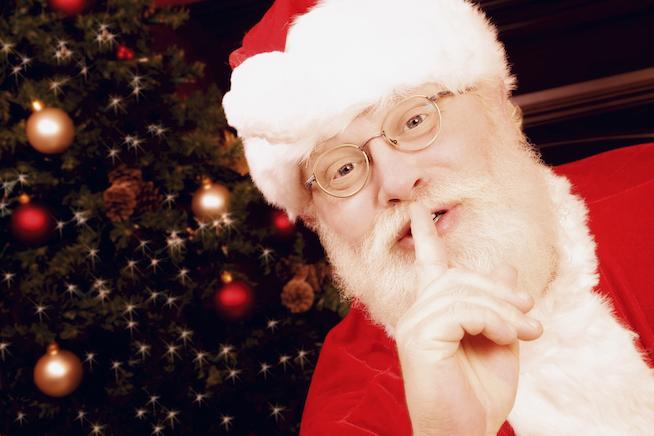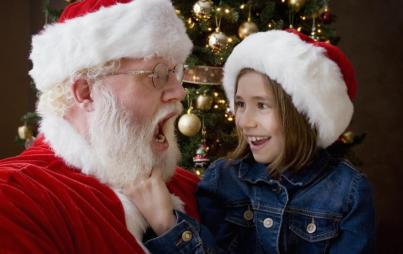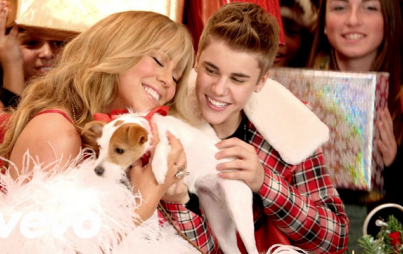
That's right, Santa's a verb now.
…how will it feel on my psyche to lie, year after year, to my daughter about a man who comes from the North Pole and sneaks into our home to leave us gifts?
My partner and I are trying to decide whether we want to Santa our daughter or not. We want to encourage honesty, and there's something about Santa that doesn't feel totally honest — especially when there are so many magical things in our world that are actually real. For example, our very existence on the planet and the way the stars align are pretty magical — do we really need Santa, too? A guy who “lives in the North Pole” (where it’s cold as hell) with elves who make cheap plastic toys? Sure, Santa is cute — he’s got a shiny nose and rosy cheeks and a jolly laugh. Santa’s got a big belly that shakes, like a bowl full of jelly, and yes, he often brings us presents, if we’re good.
On the one hand, Santa-ing is a great method to encourage good behavior in our children, making parenting extra easy for a month or two during the dark days of winter. I used it on my 2-year-old, just to see what would happen, I told her, “Santa won’t be coming if you don’t brush your teeth.” Then I creepily stared into her face to see what her reaction would be. I wondered if perhaps she was born with an “I believe in Santa” gene and she would automatically know who he was, then I remembered I don’t let her watch cable (meaning television with commercials), and not everyone celebrates Santa, so she really knows nothing. She did let me brush her teeth.
Some parents say they Santa their kids because they like to see the look of surprise on their children’s faces on Christmas morning — I can see how this would be adorable and fun. I remember my own parents leaving cookies, carrots, and milk out for Santa and his reindeer. I was thrilled when the cookies, carrots, and milk were gone in the morning — only crumbs left on the plate, a bite taken out of the carrot, and a white film left in the glass. I believed in Santa so much until I, myself, snooped, and found things that resembled stuff I would like in bags in my parents’ room one year (for example, a poster of Leonardo DiCaprio, a pre-teen magazine, and candy). When Christmas morning came and I connected the dots, my joy turned to pain, but I had to hide it, because what the heck was I doing snooping? I regretted it, and lived in denial for years and years to come.
Still, now that I’m an adult woman who still remembers her Leonardo DiCaprio poster from that fateful Christmas, I am past all of that and in a powerful position. Do I Santa my daughter? Once I make the decision, I’m going to have to stick with it for years to come, so really, the question is, how will it feel on my psyche to lie, year after to year, to my daughter about a man who comes from the North Pole and sneaks into our home to leave us gifts? Shouldn't I be concerned about her excitement in getting gifts from a complete stranger? What kind of message does that send to my daughter that she should be grateful for gifts from a strange man whom she does not know?
I love the magic of the stars that align and mark the coming of the light on the winter solstice, I love the endless stories told around the holidays, from How The Grinch Stole Christmas to Frosty The Snowman to the story of Mary to The Little Drummer Boy. There’s another kind of magic in these: The magic of the imagination of people. The generous spirit in Santa as a symbol of that — the Three Wise Men, too. We are inspired around the holidays to share what we have, donate to causes we believe in, reach out to loved ones, make ourselves vulnerable through sharing our wishes,, and give to others.
It truly is a magical time of year, and whether or not we go the whole nine yards and tell our child that Santa exists, the truth is that he exists as a symbol of generosity. Every year, we celebrate that in our hearts during the holidays. I think that’s what I’ll teach my daughter.







